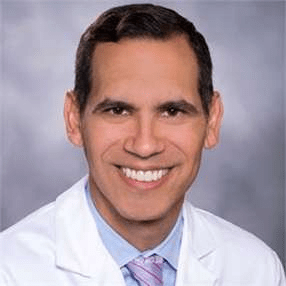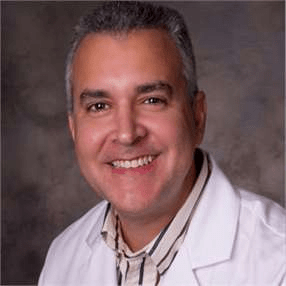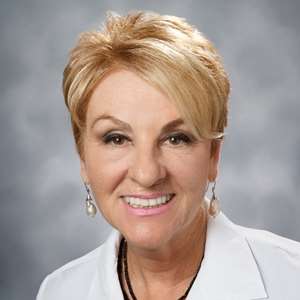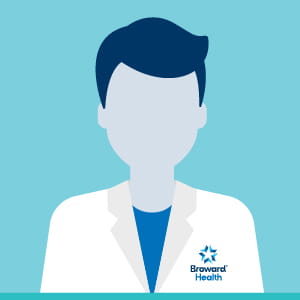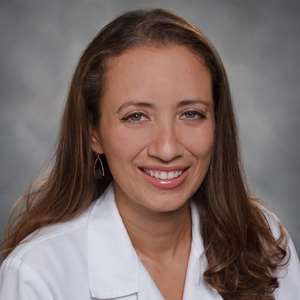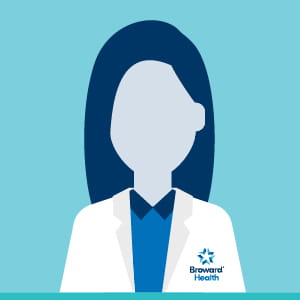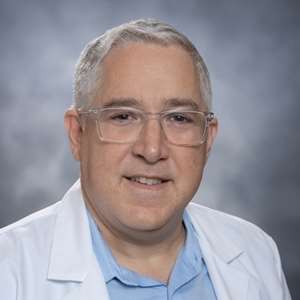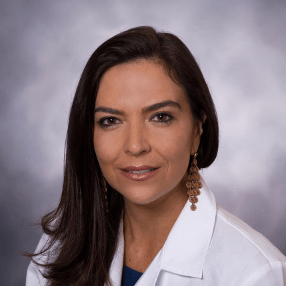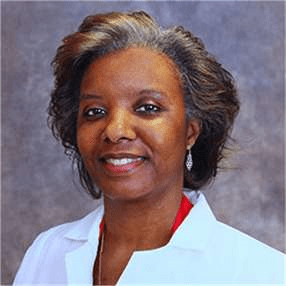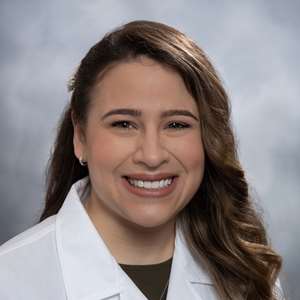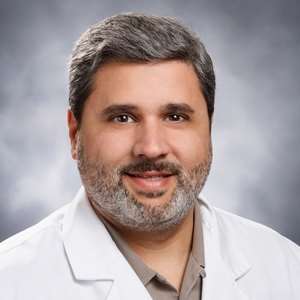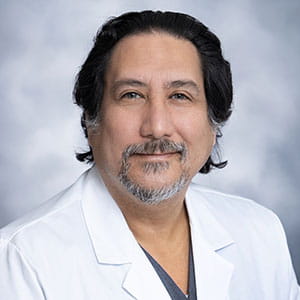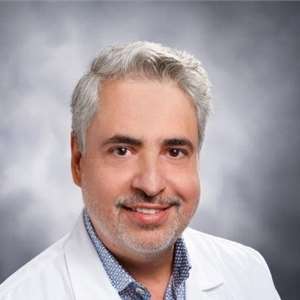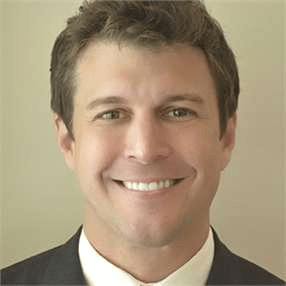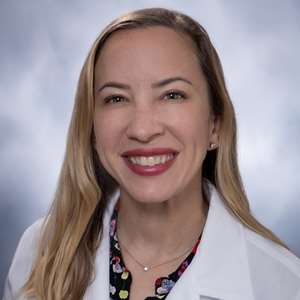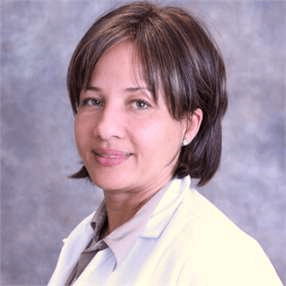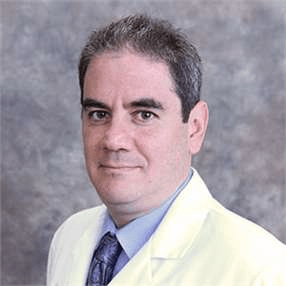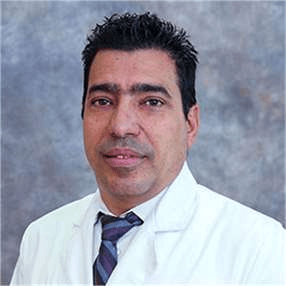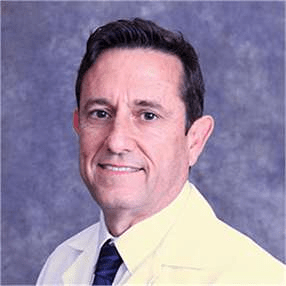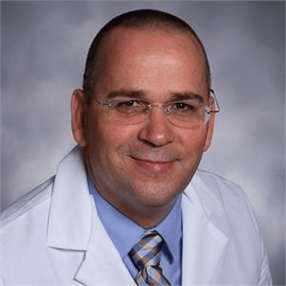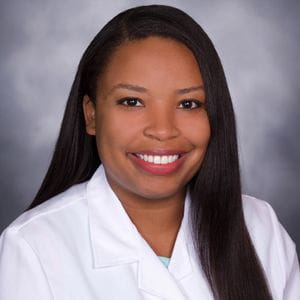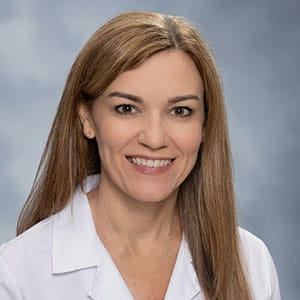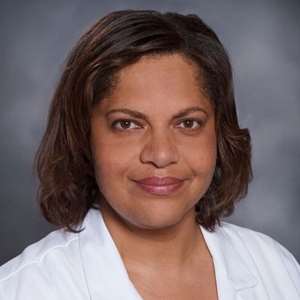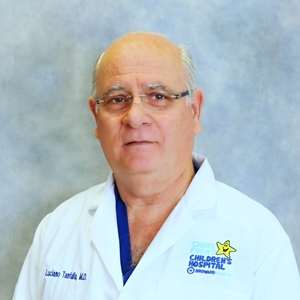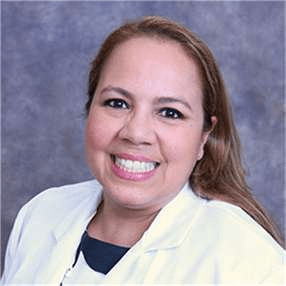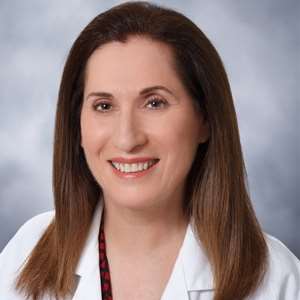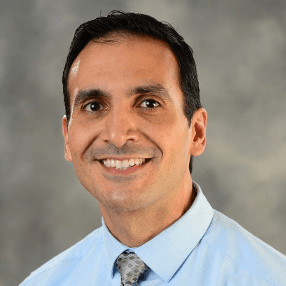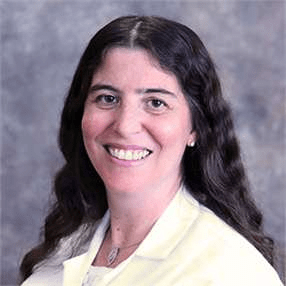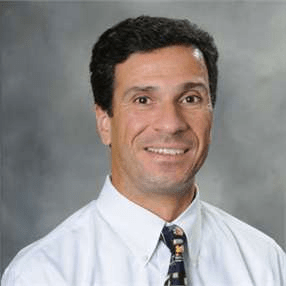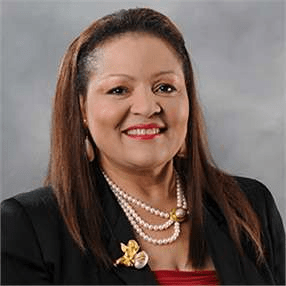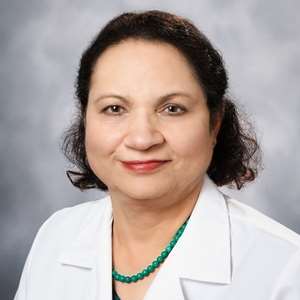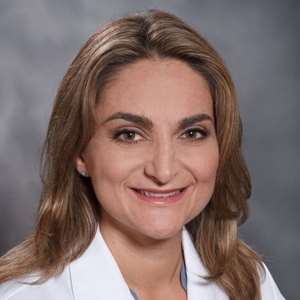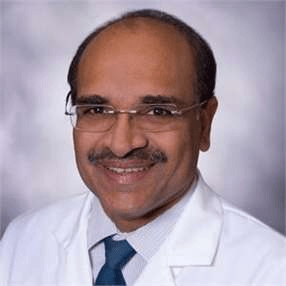Pediatrics Residency
The Pediatric Residency Program at the Children's Hospital provides the opportunity for residents to excel in a challenging academic environment, as part of a vibrant, tertiary care children's hospital.
Pediatrics Residency
Director:
Kristie Rivers, MD, FAAP
Coordinator:
Michelle De Leon
Phone:
954 712-6891
Welcome from the Program Director
Welcome to the Pediatric Residency Program at Salah Foundation Children’s Hospital. The Pediatric Residency program provides the opportunity for residents to excel in a challenging academic environment, as part of a vibrant, tertiary care children’s hospital.
Our distinguished, dedicated faculty embraces above all, excellence in clinical care and superior clinical outcomes. A clinical environment based on child-and family-centered care provides the foundation for the educational experience.
The dynamic, competency-based curriculum balances protected didactic time with hands-on clinical training. Residents have the additional advantage of direct supervision and guidance by skilled on-site faculty, representing primary care pediatrics, hospital medicine and all pediatric subspecialties.
The clinical experience is further enhanced by an innovative learning environment, a diverse patient population, state-of-the-art equipment, an on-site simulation lab and extraordinary patient pathology. Collaboration between faculty and resident provides invaluable opportunities for mentorship and individualized professional development.
The Program provides residents extensive exposure to primary care pediatrics, critically ill pediatric patients, comprehensive management of chronically ill patients, advocacy, research, and preventative medicine. Our graduates will be equipped to be health care leaders in this complex, evolving healthcare environment.
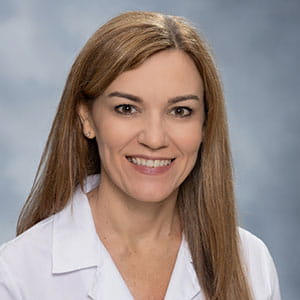
Kristie Rivers, MD, FAAP
Pediatric Residency Program Director
Assistant Medical Director, Pediatric Hospitalist Program
Salah Foundation Children's Hospital, Broward Health
About the Program
The Pediatric Residency Program at the Children's Hospital provides the opportunity for residents to excel in a challenging academic environment, as part of a vibrant, tertiary care children's hospital. Our distinguished, dedicated faculty embraces above all, excellence in clinical care and superior clinical outcomes. A clinical environment that is based on child- and family-centered care provides the foundation for the educational experience.
Program Highlights
Our residency program has a strong and effective relationship between the residents and faculty. Our 24-hour on-site Attendings provide one-to-one teaching on the Pediatric floor, NICU, PICU, and Pediatric Emergency Department, which is a tremendous bonus of the program. Procedures are taught by experienced Attendings, and Residents get the first attempt at all procedures without having interference from other learners. There is a great balance between service and education, with diverse patient population and pathology.
Pediatrics
The New Salah Foundation Children’s Hospital
Curriculum
Rotation Descriptions
Training Blocks and Sites
Following are detailed descriptions of the rotations for each post-graduate year of training in the pediatric residency program.PGY1 ROTATIONS:
Pediatric Inpatient Rotation
Residents are split between 2 teams (Orange and Blue) which are supervised by Board-Certified Pediatric Hospitalists. The teams are comprised of one senior resident, one junior resident, and medical students working as a team to provide well-rounded care to our community. As an intern, you spend 3 ½ bocks on the inpatient teams.
Night Float Rotation
Night float rotation consists of two weeks blocks at which time the resident is responsible for the management of all the patients on the pediatric floor during 14-hour shifts. A pediatric hospitalist is in-house 24 hours a day for support but residents are given the autonomy to manage issues that arise overnight. They are also responsible for all the admissions throughout the night. Residents complete one two week block toward the end of intern year. This rotation allows each resident many opportunities for individual growth and autonomy.
Hematology/Oncology Rotation
Throughout the three years of residency our residents have ample exposure to hematology and oncology patients. Every resident completes 2 full months of hematology/oncology rotations, one during intern year. During this rotation, residents are exposed to a variety of hematological and oncological conditions including sickle cell disease, ITP, AML, ALL, osteosarcoma, Wilm’s tumor, neuroblastoma, and aplastic anemia to name a few. We are involved in the management of both new diagnosis and chronic management of these conditions. We are also provided multiple opportunities to perform procedures including lumbar punctures and bone marrow biopsies. We also have opportunities throughout all three years to be involved in admissions which allows continued exposure to the management of these patients even when not on the month long rotation.
Newborn Nursery Rotation
On our nursery rotation residents work alongside attendings in the management of common newborn conditions and general newborn care. Residents are responsible for new admissions, as well as, continued care of patients already seen. Residents are exposed to a diverse patient population with varying degrees of prenatal care. In 2015, Broward Health had 5.998 births allowing our residents generous patient numbers and exposure to a wide variety of conditions.
Please get an updated number of births from 2022 if possible.
Pediatric Emergency Medicine Rotation
The pediatric emergency department is a level 1 trauma center with a 12-bed facility. We service the local Broward county and see a high-volume of pediatric patients with a wide range of medical conditions. Residents are expected to care for patients from time of triage to discharge. This is the opportune time for many procedures ranging from IV placements, laceration repairs, incision and drainage, to splinting.
Ambulatory Clinic Rotation
There are 4-affiliated outpatient pediatric clinics that residents are placed at during their first year. Residents are assigned patients throughout the year and are allowed to follow-up with them as they return for follow-up visits. Over 3-years you are able to follow many patients and help care for their growth and well-being. The clinics are staffed with board-certified pediatricians who provide didactics and mentorship.
Pediatric Surgery Rotation
The surgery rotation is completed during intern year of residency. Residents work alongside 4 busy pediatric surgeons. They are expected to assist in all surgeries from circumcisions and appendectomies to posterior sagittal anorectoplasies and bowel resections, to name a few. Residents are also expected to participate in the post-op care of all of the surgical patients for a thorough understanding of not only the surgical process but also the follow-up care and monitoring of all patients.
Developmental Pediatrics Rotation
This rotation provides a multi-disciplinary view of many developmental conditions starting from diagnosis. The residents rotate in the Early Steps clinic which is an early intervention program offered by the Florida Department of Health. A solid foundation is formed regarding the steps taken to create an individualized family support plan for these patients. Additionally, residents rotate in a private outpatient development clinic.
Adolescent Medicine Rotation
On our adolescent rotation we get a high volume and see a wide variety of complex medical problems common to the adolescent age group. We spend much of our time working at Children's Diagnostic and Treatment Center caring for a high-risk population with complex medical problems such as HIV, which is prevalent in our region. We also spend time at the Florida International University Student Health Center seeing everyday common illnesses within the adolescent population. Overall this rotation gives us a well-rounded experience with the adolescent population in our region and as a whole.
Infectious Disease Rotation
During the infectious disease rotation, you will be able to experience both inpatient and outpatient practices. Residents are expected to follow inpatient consults, create management plans along with the attending physician, and create proper documentation. Timing of rounds will vary day to day. You will be excused for daily conferences and are expected to participate in the assigned ID noon conference for the block. Once a week, you will attend the pediatric ID clinic and will be able to follow-up with patients post hospitalization.
Selective Rotation
Selective rotations in the first year include Neurology, Cardiology, Renal, GI, Endocrinology, and Pulmonology. Each resident chooses 1 selective during their first year to further their knowledge of core pediatric specialties.
PGY2 ROTATIONS:
Pediatric Inpatient Rotation
Residents are split between 2 teams (Orange and Blue) which are supervised by Board-Certified Pediatric Hospitalists. The teams are comprised of one senior resident, one junior resident, and medical students working as a team to provide well-rounded care to our community. Second years spend one block as a senior on the inpatient teams.
Hematology / Oncology Rotation
Throughout the three years of residency our residents have ample exposure to hematology and oncology patients. Every resident completes 2 full months of hematology/oncology rotations, one during second year. During this rotation, residents are exposed to a variety of hematological and oncological conditions including sickle cell disease, ITP, AML, ALL, osteosarcoma, Wilm’s tumor, neuroblastoma, and aplastic anemia to name a few. We are involved in the management of both new diagnosis and chronic management of these conditions. We are also provided multiple opportunities to perform procedures including lumbar punctures and bone marrow biopsies. We also have opportunities throughout all three years to be involved in admissions which allows continued exposure to the management of these patients even when not on the month long rotation.
Neonatal Intensive Care Unit Rotation
With the newly renovated Level 3 NICU, residents are able to gain experience with a variety of acute and progressive cases. The unit is comprised of an acute floor and progressive floor with a 24-hour attending physician and nurse practitioner team. Residents are responsible for management of the acute patient team, attending cesarean section deliveries, and are able to do a variety of procedures.
Night Float Rotation
Night float rotation consists of 2 weeks blocks at which time the resident is responsible for the management of all the patients on the pediatric floor during 14 hours shifts. A pediatric hospitalist is in-house 24 hours a day for support but residents are given the autonomy to manage issues that arise overnight. They are also responsible for all the admissions throughout the night. Residents complete two 2 week blocks during second year. This rotation allows each resident many opportunities for individual growth and autonomy.
Pediatric Emergency Room Rotation
The pediatric emergency department is a level 1 trauma center with a 12-bed facility. We service the local Broward county and see a high-volume of pediatric patients with a wide range of medical conditions. Residents are expected to care for patients from time of triage to discharge. This is the opportune time for many procedures ranging from IV placements, laceration repairs, incision and drainage, to splinting.
Ambulatory Clinic Rotation
There are 4-affiliated outpatient pediatric clinics that residents are placed at during their first year. Residents are assigned patients throughout the year and are allowed to follow-up with them as they return for follow-up visits. Over 3-years you are able to follow many patients and help care for their growth and well-being. The clinics are staffed with board-certified pediatricians who provide didactics and mentorship.
Pediatric ICU Rotation
Residents rotate through a 12-bed pediatric ICU when on this rotation. With Broward General Medical Center being a level 1 trauma center, you care for critically ill patients with many medical and surgical complications. Residents are exposed to a variety of diagnoses and will learn the essentials of management for critically ill pediatric patients. There is a 24-hour attending physician. Every morning there are multidisciplinary rounds with pediatric pharmacists, social workers, nursing staff, and respiratory therapists. Residents also participate in the transportation teams.
Advocacy Rotation
In their second year, residents spend 4 weeks in the community learning about how to best advocate for their patients. Whether they are spending the day at a medical daycare or teaching in a local school, residents are able to gain a better understanding of the unique challenges our patient population faces each day.
Selective Rotations
Selective rotations the second year include Neurology, Cardiology, Renal, GI, Endocrinology, and Pulmonology. Each resident chooses 2 selectives during their second year to further their knowledge of core pediatric specialties.
PGY3 ROTATIONS:
Pediatric Inpatient Rotation
Residents are split between 2 teams (Orange and Blue) which are supervised by Board-Certified Pediatric Hospitalists. The teams are comprised of one senior resident, one junior resident, and medical students working as a team to provide well-rounded care to our community. Third year residents spend 2 blocks as team seniors.
Neonatal Intensive Care Unit Rotation
With the newly renovated Level 3 NICU, residents are able to gain experience with a variety of acute and progressive cases. The unit is comprised of an acute floor and progressive floor with a 24-hour attending physician and nurse practitioner team. Residents are responsible for management of the acute patient team, attending cesarean section deliveries, and are able to do a variety of procedures.
Pediatric ICU
Residents rotate through a 12-bed pediatric ICU when on this rotation. With Broward General Medical Center being a level 1 trauma center, you care for critically ill patients with many medical and surgical complications. Residents are exposed to a variety of diagnoses and will learn the essentials of management for critically ill pediatric patients. There is a 24-hour attending physician. Every morning there are multidisciplinary rounds with pediatric pharmacists, social workers, nursing staff, and respiratory therapists. Residents also participate in the transportation teams.
Newborn Nursery Rotation
On our nursery rotation residents work alongside attendings in the management of common newborn conditions and general newborn care. Residents are responsible for new admissions, as well as, continued care of patients already seen. Residents are exposed to a diverse patient population with varying degrees of prenatal care. In 2015, Broward Health had 5.998 births allowing our residents generous patient numbers and exposure to a wide variety of conditions.
Please get an updated number of births from 2022 if possible.
Ambulatory Clinic Rotation
There are 4-affiliated outpatient pediatric clinics that residents are placed at during their first year. Residents are assigned patients throughout the year and are allowed to follow-up with them as they return for follow-up visits. Over 3-years you are able to follow many patients and help care for their growth and well-being. The clinics are staffed with board-certified pediatricians who provide didactics and mentorship.
Pediatric Emergency Room Rotation
The pediatric emergency department is a level 1 trauma center with a 12-bed facility. We service the local Broward county and see a high-volume of pediatric patients with a wide range of medical conditions. Residents are expected to care for patients from time of triage to discharge. This is the opportune time for many procedures ranging from IV placements, laceration repairs, incision and drainage, to splinting.
Elective Rotations
In their third year, residents are able to choose from a variety of elective experiences, including but not limited to ortho, allergy/immunology, dermatology. psychiatry, urology, ENT, research, pathology, lactation, concierge medicine, private practice, outpatient hematology-oncology, hospitalist medicine, anesthesia, procedures, and gynecology. Residents can also choose any remaining selectives in which they are interested.
Board Study Rotation
Residents are given a 4 week block at the end of their third year to prepare for their boards by completing mandatory reading and question assignments, as well as the opportunity to facilitate monthly board review for the program.

Meet our Residents
Meet our residents from across the country and abroad, representing the diverse culture of South Florida. Broward Health takes pride in its training programs with broad perspectives that enrich the residents' learning experience.
Pediatrics